Anxiety in Pets
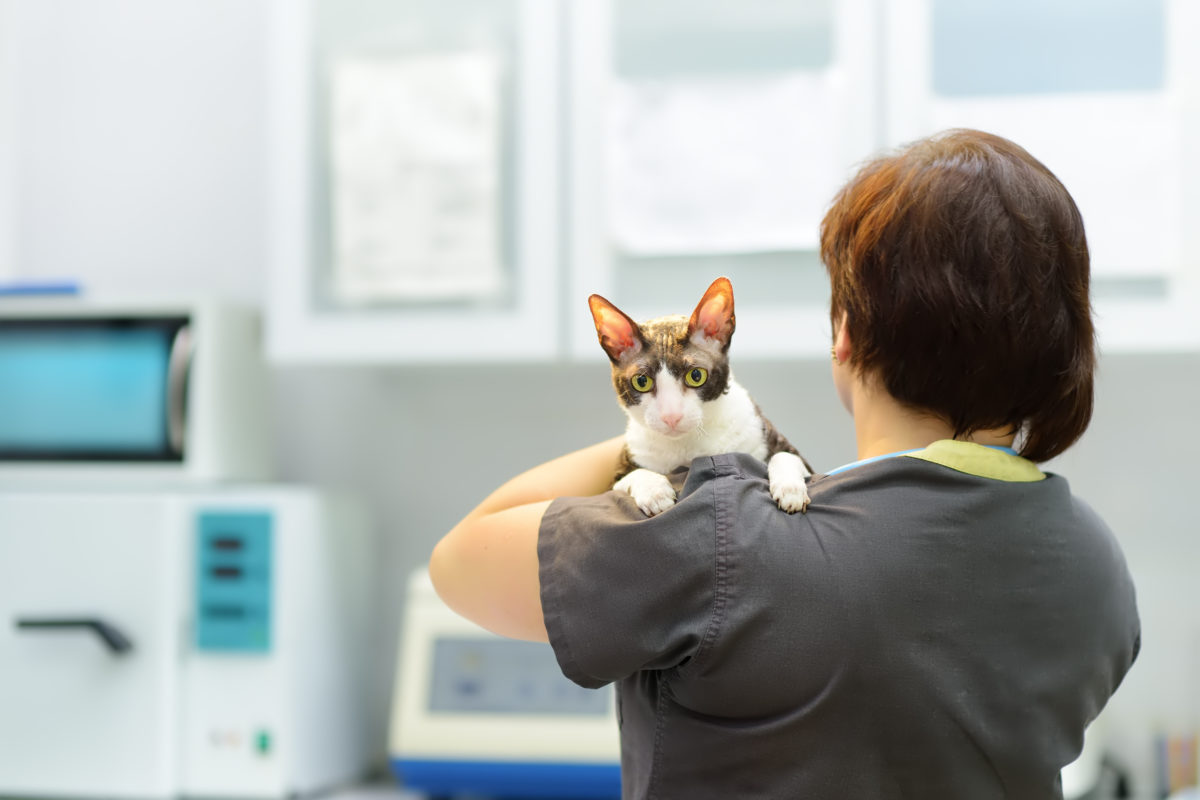
Like humans, dogs and cats can also experience anxiety and stress, which can pose a significant challenge for pet owners.
It is important for pet owners to recognise the signs of anxiety in pets and understand what they can do to help their pets feel more at ease and relaxed. This may include specific strategies to help alleviate anxiety and stress or even the use of medication in some circumstances.
Dog Anxiety
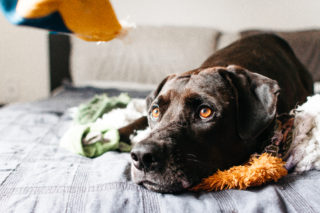
Despite their cuddly companionship and love for attention, dogs can experience anxiety from time to time. Some dog breeds are particularly prone to experiencing anxiety.
As a dog owner, it is important to understand how anxiety impacts your pet’s well-being and quality of life.
Signs of anxiety in dogs
- Prolonged or incessant barking
- Destructive behaviour
- Excessive panting or drooling
- Excessive pacing or trembling
- Quieter than usual, sleeping more, depressed state
- Long car trips
Triggers for anxiety can be multiple but can include separation from owners, boredom, changes in routine, loud noises, illness and unfamiliar environments.
How to help your dog
There are several things that owners can do to help alleviate anxiety in dogs, but first, it is crucial to attempt to find out the cause of their anxiety. By discussing your dog’s anxiety symptoms with a qualified veterinarian, you can narrow down the likely cause(s) and explore strategies to help your furry friend.
Separation Anxiety
With separation anxiety being one of the most common anxieties there are a few things you can try at home to ease their symptoms. If your dog is used to you being at home for large periods of time it is important to gradually acclimatise your dog to being alone rather than suddenly leaving them on their own.
Signs of anxiety in dogs
Dog separation anxiety training begins with only a few seconds away from your dog, gradually increasing this interval each time you leave their sight. Separation anxiety training has proven to be one of the most effective strategies for dealing with dog anxiety.
Providing your pet with a safe and comfortable space, where they can retreat and relax when they feel overwhelmed can also help reduce their anxiety. Exercise, play, and positive reinforcement can also be effective strategies for reducing anxiety.
If your pet suffers from an anxiety disorder, a veterinarian may find it necessary to prescribe medication designed to help manage stress.
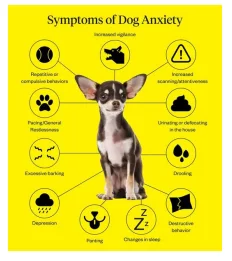
Cat Anxiety
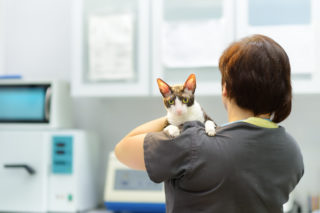
While cats are often seen as independent animals, they can also experience anxiety. Common causes of anxiety in cats include loud noises, new people or pets in the home, trips to the vet, or changes in routine. If your cat is anxious, they may hide, groom excessively, show aggression, or avoid social interaction.
Signs of anxiety in cats
- Hiding
- Decreased activity level
- Change of mood (eg. More quiet than usual, sleeping, aggression)
- Change in social interaction (eg. Avoiding owners interaction)
- Changes in litter box habits (eg. Urinating outside the litter box)
- Excessive vocalisation / meowing
- Reduced appetite
- Compulsive behaviours (eg. overgrooming) increased night activity, destructive clawing of furniture)
Causes of anxiety can be varied but can include; loud noises, changes in normal routine or changes in the household, new people or pets in the home, and trips to the boarding cattery or veterinary clinic.
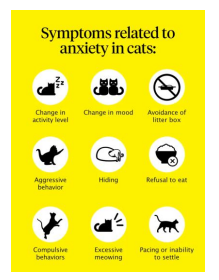
How to Help Your Cat
Some strategies to help ease your cat’s anxiety include:
- Creating a safe and secure environment such as a designated space where they can retreat when feeling overwhelmed
- Providing hiding spots (eg. boxes), perches, elevated wall platforms, cat trees, perches & hammocks.
- Regular interactive play (eg. feather / chaser wands, tunnel structures, puzzle toys which treats can be put in, or toys resembling prey)
- Consistency in their feeding schedule
In some cases, your cat may need medication or other treatments to manage their symptoms. If you believe your cat is still anxious after trying the above strategies, your veterinarian will be able to discuss other options with you.
Need Professional Help?
Anxiety is a common issue affecting both dogs and cats, and can significantly impact their well-being. By being aware of what triggers their anxiety and taking steps to address it, you can help your pet feel more relaxed and safe.
If you are concerned about anxiety in your dog or cat, the team at Clyde Veterinary Hospital is here to help. Simply give us a call at (03) 9069 4088, email us at info@clydevet.com.au or use our online form to book an appointment with a veterinarian today.


